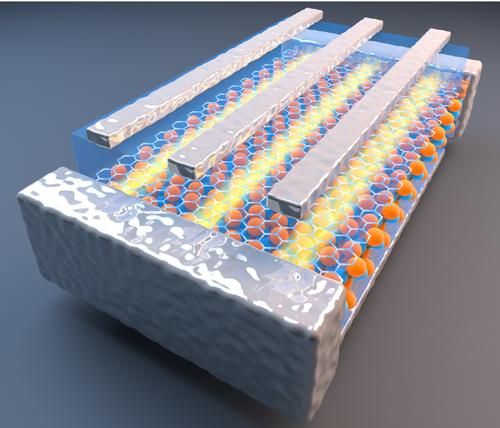PORTLAND, Ore. — A new type of transistor harnesses a new effect–called the quantum spin Hall effect — to create a topological field effect transistor (TFET) according to a Massachusetts Institute of Technology (MIT) researcher who recently moved to the newly formed Department of Materials Science and Engineering at Texas A&M University where the Texas Advanced Computer Center (TACC) confirmed the researcher’s results.
“We found that when deposited in a flat sheet just three atoms thick, our crystalline lattices exhibited a new electronic effect we call the quantum spin Hall effect,” professor Xiaofeng Qian told EE Times.
(Source:Texas A&M University)
Next Qian and colleagues want to hunt for new materials that exhibit the same or similar characteristics operating at room temperature. He is also handing off his theoretical work to several experimental labs which will build the new TFET in the lab. By combining the TFET with superconductors, Qian hopes experimentalists will achieve the Majorana fermion zero mode — the holy grail of topological quantum computing.
There is so much opportunity in two-dimensional materials research. Its not just graphene we should be studying, but the many other opportunities in 2-D materials. We expect to be using 2-D materials in real applications in the very near future.”
For more detail: Transistors Prelude Quantum Computers

